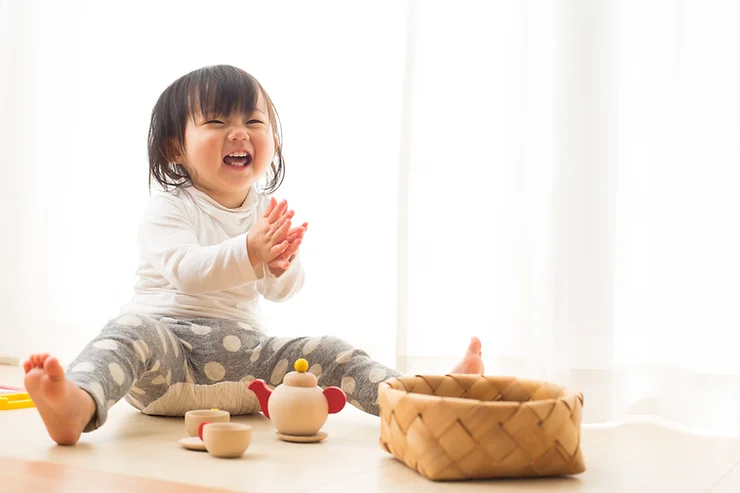Ah, the dummy (or pacifier, depending on where you’re from). That tiny plug of peace that has soothed your little one through sleepless nights, teething pain, and moments when you were this close to losing it. But now, the time has come to part ways, and if you’re like me, the thought of ditching the dummy fills you with equal parts determination and dread.
Fear not, fellow parents! We’re in this together. Let’s dive into some practical, realistic ways to stop using the pacifier while keeping your sanity intact.
1. Going Cold Turkey: The Bold Approach
Let’s start with the all-or-nothing method. You wake up one day, gather every dummy (or pacifier) in the house, and poof – they vanish. This can be surprisingly effective for some kids. Of course, it might mean a few (or a lot of) rough nights while your little one adjusts, but for some families, the quick rip-off-the-Band-Aid approach works wonders.
Top Tips for Cold Turkey Success:
- Timing is everything: Don’t pick a week when you’ve got a wedding, a major deadline, or, heaven forbid, a houseguest.
- Get them on board: Depending on their age, explain what’s happening. Something like, “The dummy fairy is visiting tonight! She needs dummies to help other babies sleep.” (Feel free to go wild with the theatrics.)
- Stick to your guns: Once the dummy is gone, it’s gone. Hide them in a place you can’t reach during a moment of weakness. (We’ve all been there.)
2. The Gradual Weaning: Slow and Steady Wins the Race
If cold turkey sounds too hardcore, there’s the more forgiving gradual approach. This is about limiting dummy (or pacifier) use little by little until your child no longer depends on it. Start by saying goodbye to the dummy during the day, keeping it strictly for naps and bedtime. Once they’re used to that, take it away during naps. Bedtime is usually the last stronghold.
Pro Tips for Gradual Weaning:
- Introduce a replacement: A cuddly toy, blanket, or even a new bedtime ritual can help fill the comfort gap.
- Celebrate progress: Small wins deserve big cheers. “Wow, you didn’t need your dummy at all this morning!”
- Stay consistent: If you let the dummy creep back into daytime use “just this once,” you’re making it harder on yourself in the long run.
3. Avoid During Periods of Sickness or Stress
Here’s the thing: if your little one is battling a cold, teething, or experiencing a major life change (new sibling, starting nursery, etc.), this is not the time to tackle ditching the pacifier. Let them have their comfort for now and wait for a calmer moment to begin.
4. Offer Replacements: Trade One Comfort for Another
Some kids struggle with the idea of losing the dummy because it’s their go-to for soothing themselves. Offering a replacement can help ease the transition. This might be:
- A special stuffed animal: Let them pick out a “dummy buddy” to cuddle instead.
- A “big kid” reward: A sticker chart leading to a special treat or toy can be motivating.
- A new bedtime routine: Reading extra stories or adding lullabies can make bedtime feel special and safe.
5. Prepare for the Drama (and Know It’s Temporary)
Let’s be honest, there might be tears. Your child might act as if you’ve stolen their most prized possession (which, in a way, you have). It’s okay to feel bad, but remember: this is a short-term struggle for a long-term benefit.
Stay calm and supportive. Offer extra cuddles, be patient, and know that you’re doing the right thing. They won’t go off to university with a dummy in their suitcase (though it might feel like it now!).
Frequently Asked Questions About Ditching the Dummy
1. When is the best time to get rid of the dummy?
The ideal time to ditch the pacifier is when your child is healthy, happy, and not experiencing major life changes. Most experts suggest transitioning away from the dummy by age 2 to avoid dental issues or speech delays.
2. What if my child asks for the dummy repeatedly?
Stay firm but empathetic. Redirect their attention to a replacement comfort item or activity. Consistency is key to making the transition smoother.
3. How long does it take to break the dummy habit?
Every child is different, but most adapt within a week or two. The first few days are usually the hardest.
A Final Note on Parental Guilt
I know firsthand how easy it is to feel guilty about taking away something your child loves. But here’s the thing: you’re teaching them to self-soothe and adapt, which are invaluable life skills. Plus, you’re reducing the risk of dental issues and speech delays, which is a huge win.
So, take a deep breath, trust yourself, and dive in. Whether you’re team cold turkey or team gradual weaning, you’ve got this. And when you’re on the other side of it, enjoying peaceful, dummy-free nights, you’ll look back and wonder why you didn’t do it sooner.
Good luck, and may the Dummy Fairy be forever in your favour!



